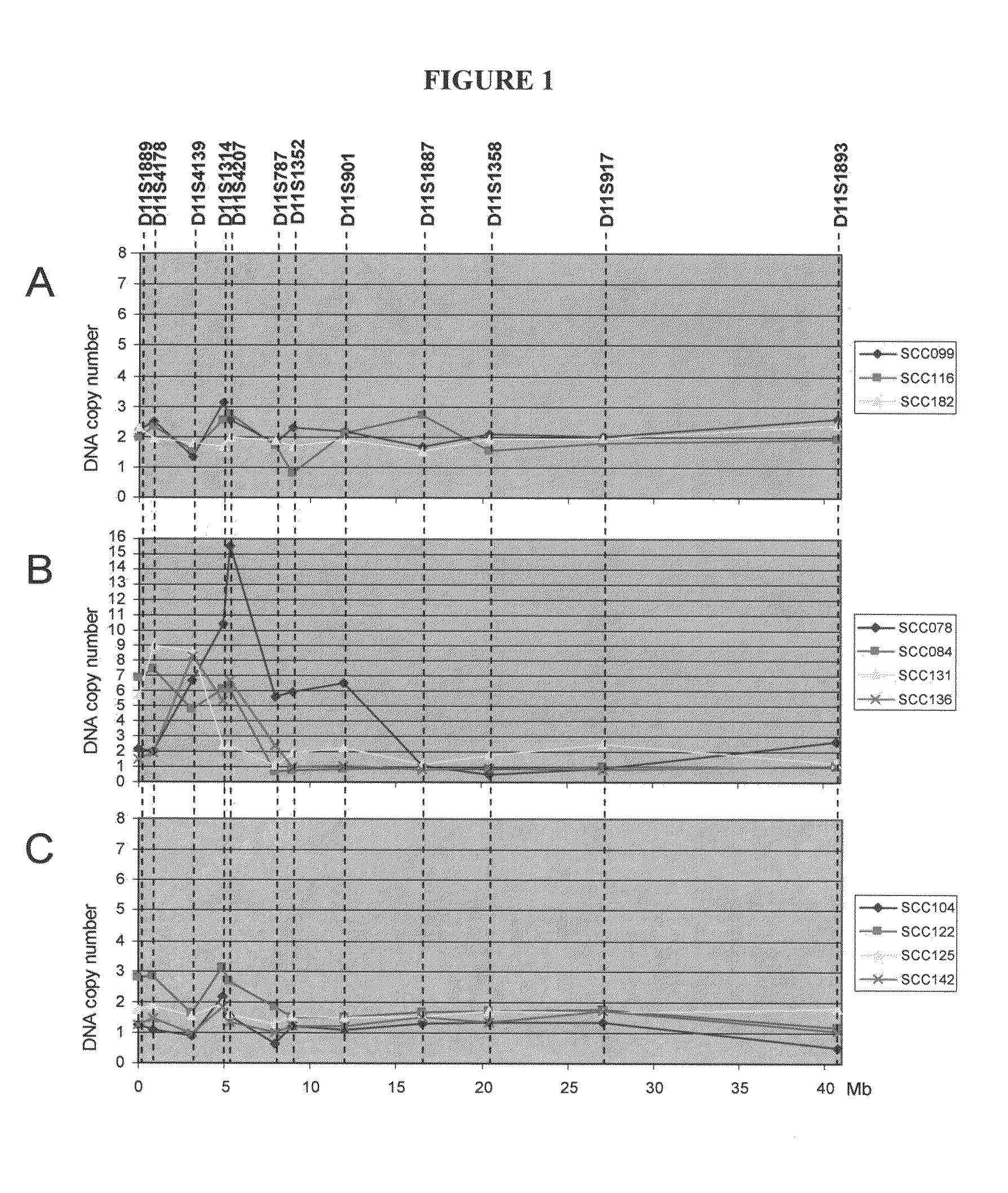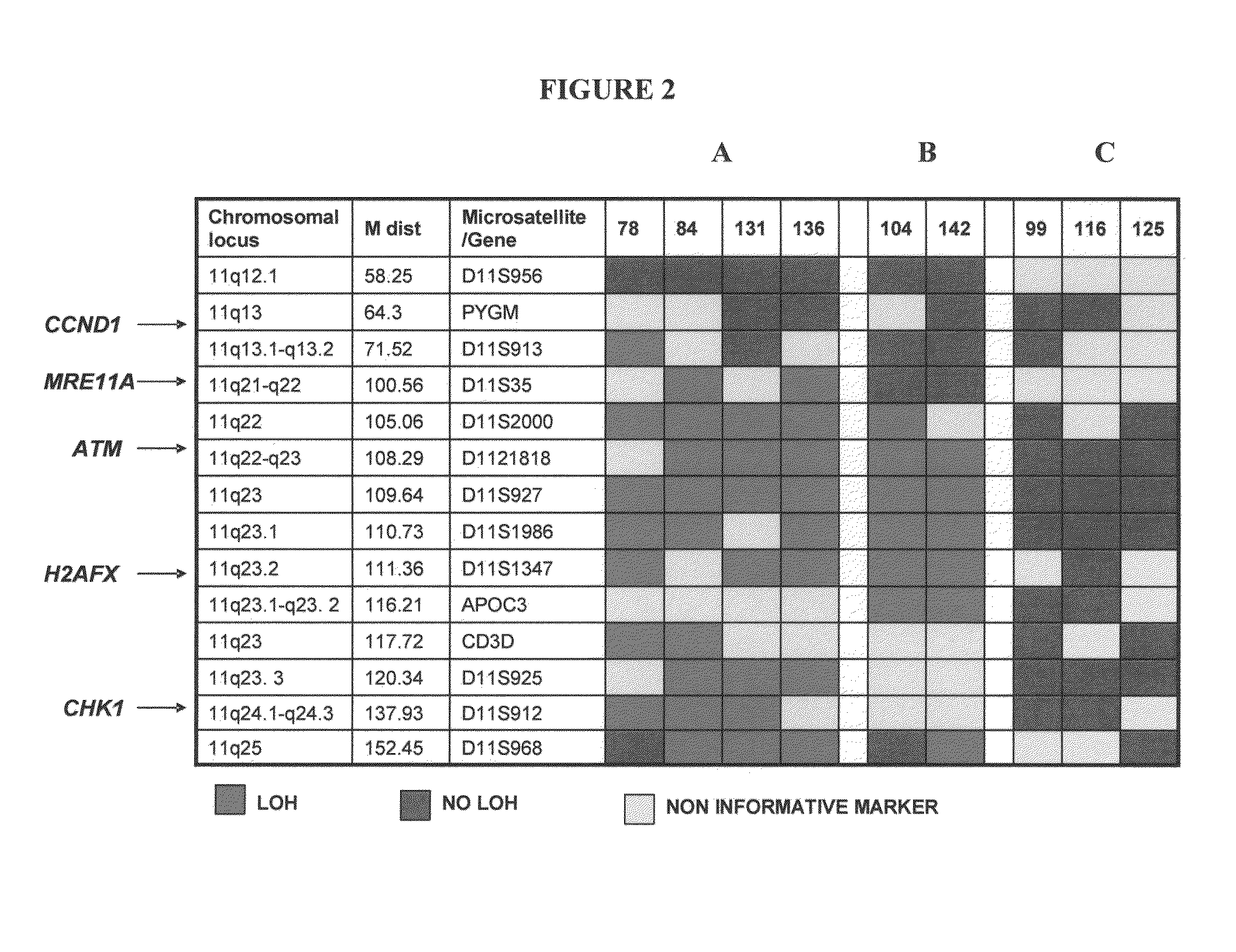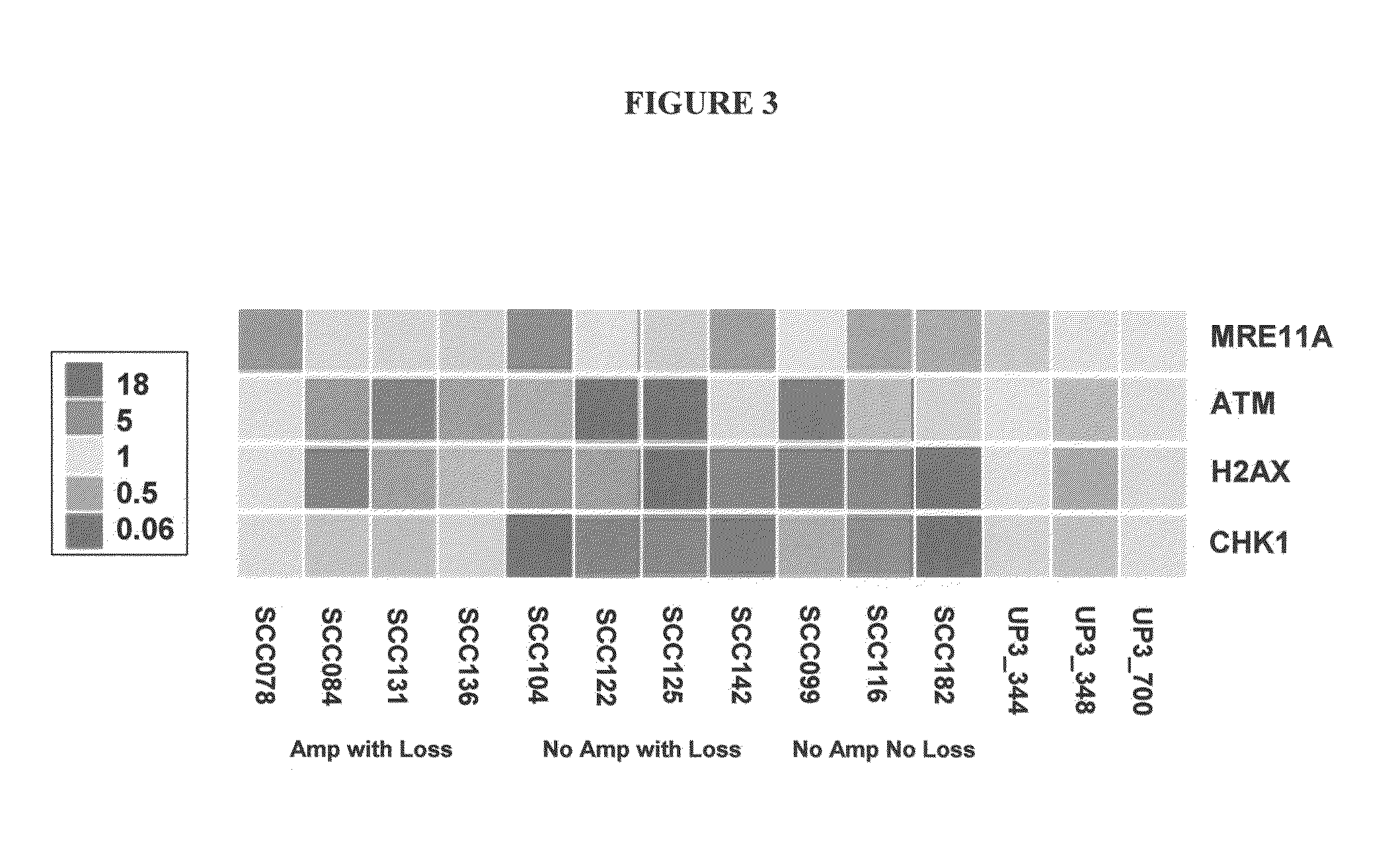Genetic changes in ATM and ATR/CHEK1 as prognostic indicators in cancer
a gene and atr/chek1 technology, applied in the field of gene changes in atm and atr/chek1 as prognostic indicators in cancer, can solve the problems of head and neck tumor development, chromosomal instability is a relatively large number, and achieve the effect of equal survival
- Summary
- Abstract
- Description
- Claims
- Application Information
AI Technical Summary
Benefits of technology
Problems solved by technology
Method used
Image
Examples
Embodiment Construction
[0059]For clarity of description, and not by way of limitation, the present invention is divided into the following subsections:[0060](i) methods of identifying 11q deletion;[0061](ii) methods of identifying ATR / CHEK1 / CCND1 / p53 copy number alterations and / or overexpression;[0062](iii) methods of identifying target patients;[0063](iv) methods of treating target patients; and[0064](v) kits.
5.1 Methods Of Identifying 11Q Deletion
[0065]In one non-limiting aspect of the invention, the present invention provides for identifying an 11q deletion in a patient sample.
[0066]The term “11q deletion” refers to a deletion in the long arm of human chromosome 11 which comprises at least a part of the ATM gene and may further comprise at least a portion of MRE11A, H2AFX, and / or CHEK1.
[0067]A patient sample is a sample that contains genomic material. For example, but not by way of limitation, the sample may be a cell, a tissue, or DNA. In a specific, non-limiting embodiment, the sample comprises a can...
PUM
| Property | Measurement | Unit |
|---|---|---|
| time | aaaaa | aaaaa |
| pH | aaaaa | aaaaa |
| temperature | aaaaa | aaaaa |
Abstract
Description
Claims
Application Information
 Login to View More
Login to View More - R&D
- Intellectual Property
- Life Sciences
- Materials
- Tech Scout
- Unparalleled Data Quality
- Higher Quality Content
- 60% Fewer Hallucinations
Browse by: Latest US Patents, China's latest patents, Technical Efficacy Thesaurus, Application Domain, Technology Topic, Popular Technical Reports.
© 2025 PatSnap. All rights reserved.Legal|Privacy policy|Modern Slavery Act Transparency Statement|Sitemap|About US| Contact US: help@patsnap.com



